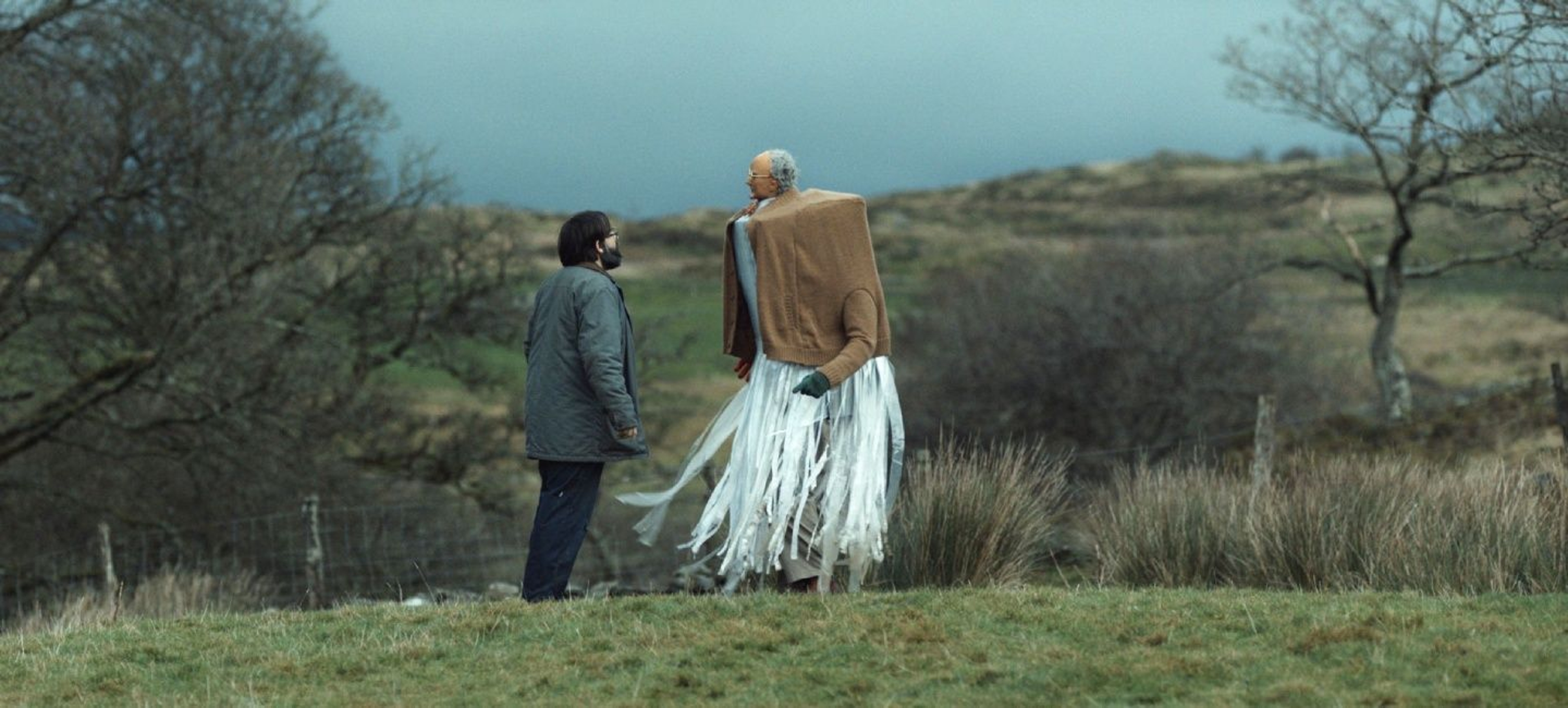Jim Archer’s Brian and Charles is a joyous celebration of the strange and eccentric in all of us. When Brian (David Earl), a lonely inventor in North Wales, builds a robot from junkyard debris, the impossible happens. His invention actually works, providing him a friend, mentee, ward, and roommate in the form of the newly sentient robot, Charles Petrescu (Chris Hayward). While the film is, as Popmatters points out, “a celebration of inventiveness and ingenuity,” it also revels in the absurd and silly. From a robot with a washing machine tummy to egg belts and pine-cone bags, Brian’s imagination deals with the ludicrous and zany, qualities that also define the film’s comic sensibility. But such daft delights can be deceptive, since, as Variety points out, “Brian and Charles leaves a serious trace through its pure sense of optimism.”
With Brian and Charles now in theaters, we remember other ingenious films who took the absurd seriously, letting their the odd and off-kilter plots to push us to see things in a different perspective.
The official trailer for Brian and Charles

Kate Winslet and Jim Carrey in Eternal Sunshine of the Spotless Mind
Eternal Sunshine of the Spotless Mind
In crowning Eternal Sunshine of the Spotless Mind’s screenwriter Charlie Kaufman as “Hollywood’s most accomplished absurdist,” Vox spotlights how the scribe used with surgical precision strange plot twists to explore the human heart in his sci-fi romance. On learning his his girlfriend, Clementine (Kate Winslet), has removed all memories of him with the help of the tech firm Lacuna, Inc., Joel Barish (Jim Carrey) decides to do the same. Despite his best intentions, however, Joel finds that his memories won’t stay in the past. For Slate, Kaufman’s “bizarre futuristic scenario to tell us something about the here and now: about the loss of our most vivid loves to the impermanence of memory; and about the life we lose when, to go on living, we force ourselves to forget.” While PhD students have written complex theses on the film’s philosophical implications, fans remain loyal to its tale of crazy love. Apprising why Michel Gondry's Eternal Sunshine still resonates 15 years after its premiere, Vanity Fair reminds us that that film “never loses its puckish playfulness.”
Watch Eternal Sunshine of the Spotless Mind on iTunes or Amazon.
"Trying to save Clementine from Being Erased" clip from Eternal Sunshine of the Spotless Mind
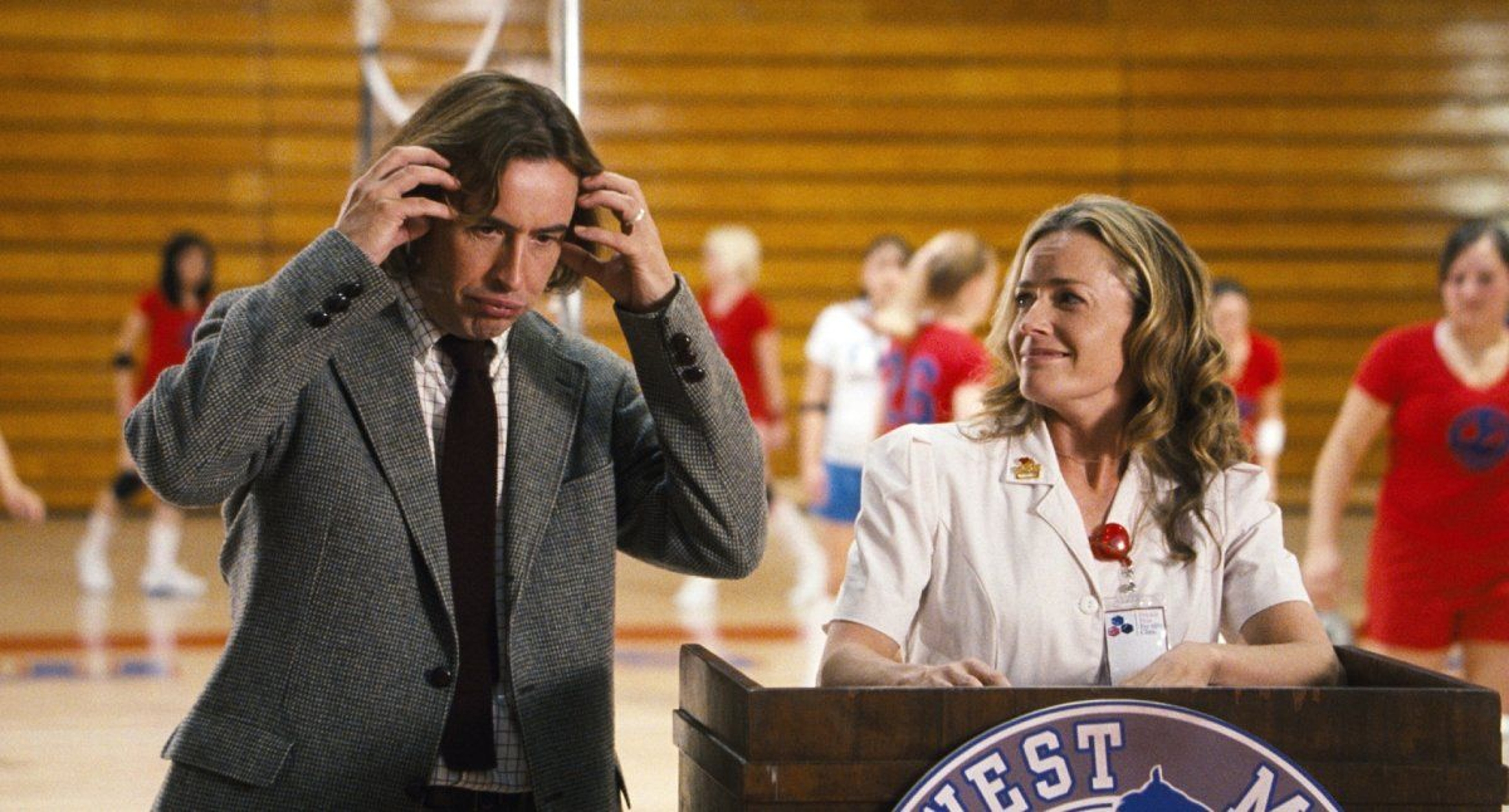
Steven Coogan and Elisabeth Shue in Hamlet 2
Hamlet 2
Towards the end of Andrew Flemings’s madcap Hamlet 2, a parent watching the Shakespearean sequel exclaims, “I’m simultaneously horrified and fascinated.” Those dual emotions rule both reactions to the story of the film’s hero, recovering alcoholic and drama teacher Dana Marschz’s (Steve Coogan), and his musical spectacular Hamlet 2 with its time-traveling Jesus Christ accompanied by vocal stylings of the Gay Men's Chorus of Tucson. In a last-ditch attempt to save his school’s drama department, Marschz follows all his worst instincts to bring this epic production to life, even as his real-life marriage and career are dying. Of course, his crazed energy is what makes both film and show work. As Entertainment Weekly points out, “as a pedestal for the riotous beyond-shame theatrics of Steve Coogan unhinged, the film is often dementedly hilarious.”
The official trailer for Hamlet 2
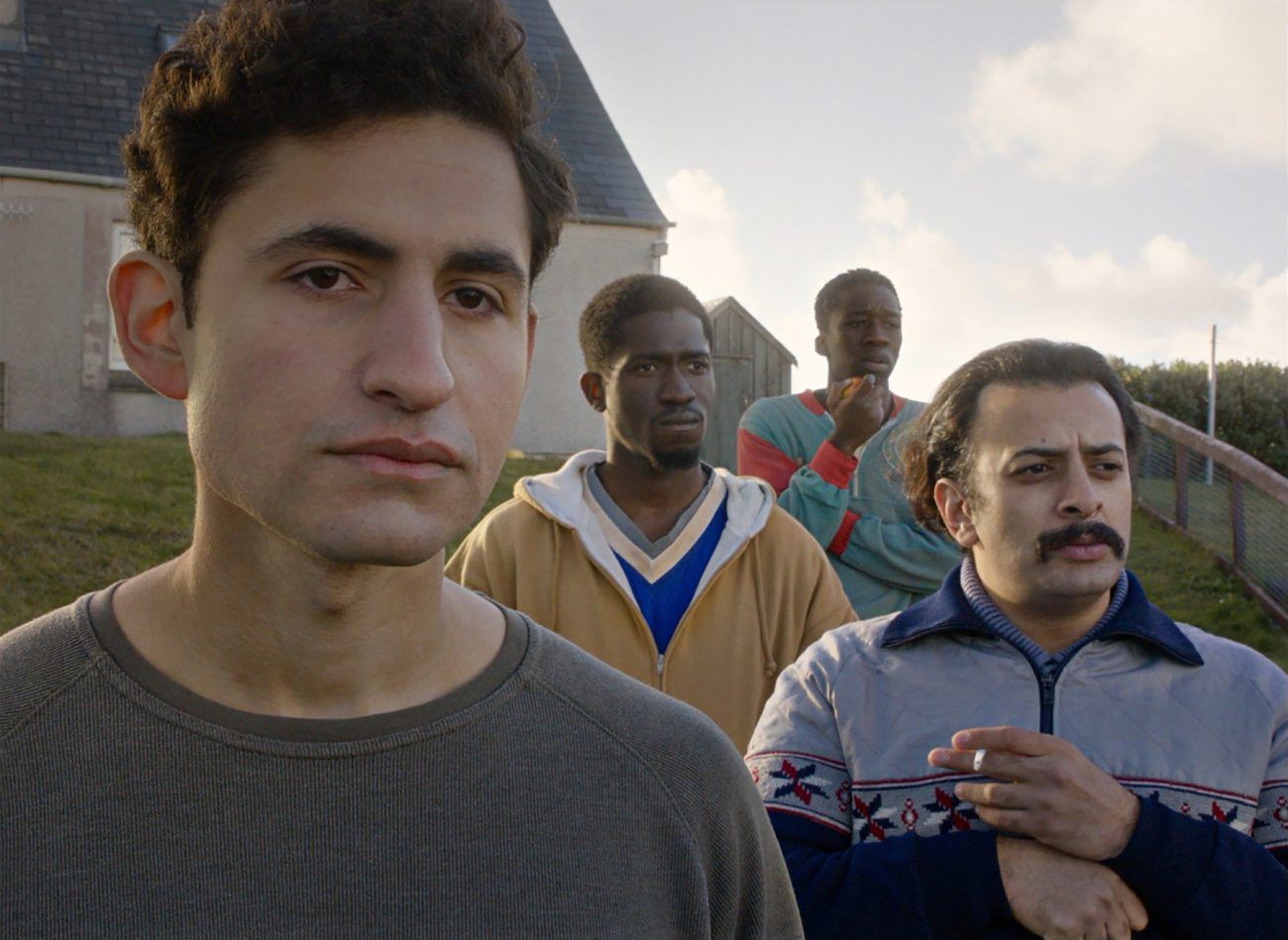
Amir El-Masry, Ola Orebiyi, Kwabena Ansah, and Vikash Bhai in Limbo
Limbo
In Limbo, writer/director Ben Sharrock uses absurdist humor to highlight political issues that realism often renders illegible. Sharrock tells a tale of four refugees from conflict-torn lands stuck on a remote Scottish island waiting for their residency petitions to be removed. There, Omar (Amir El-Masry) and his friends watch old reruns of Friends and attend awkward workshops on sexual mores while the cold, rainy weather outside never changes. In time, the absurdity of their plight and the humanity of their situation reveals itself. RogerEbert.com notes, “Sharrock’s greatest feat here is using all these absurdist touches towards achieving a sensitive, reflective sort of humor…without making Omar and his mates the butt of the joke.”
Watch Limbo on iTunes or Amazon
The official trailer for Limbo
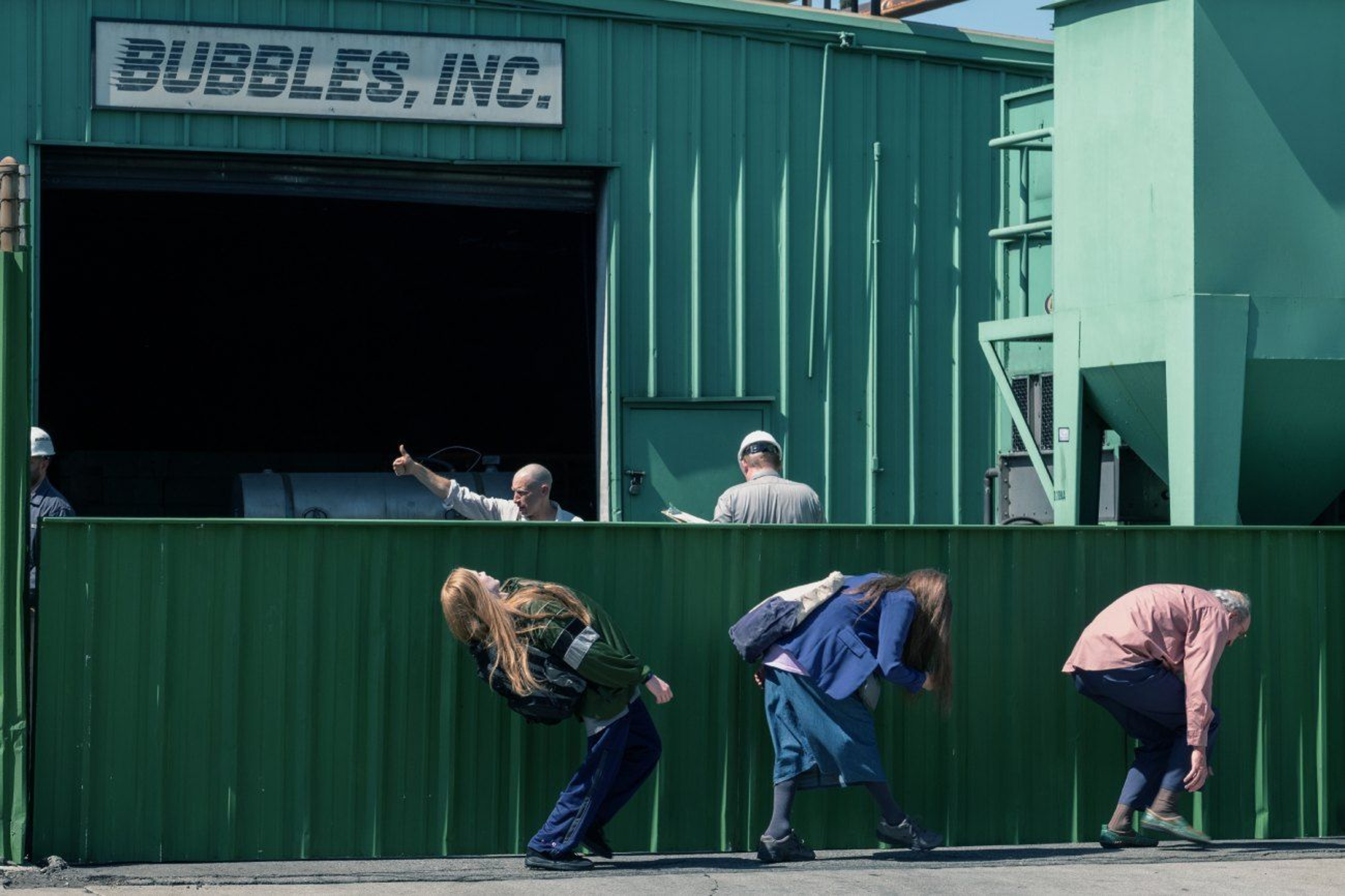
Evan Rachel Wood, Debra Winger and Richard Jenkins in Kajillionaire
Kajillionaire
In Kajillionaire, Miranda July spins anabsurdist version of the traditionally slick con-man heist film. Here, the Dynefamily—Evan Rachel Wood, Debra Winger, and Richard Jenkins—barely pull off scams whose meager pay outs rarely justify their complicatedset ups. Living in a Bubbles factoryin an industrial neighborhood of Los Angeles, the Dynes exist in a SouthernCalifornia without glamor. July’s off-the-wall details, whilehilarious in themselves, also center the emotional frame of the story, bringingto light what is really at stake. Kajillionaire is, explains Screen Daily, “abeautifully bizarre film whose considerable strangeness allows for sharpobservations about family, loneliness and the terror of emotional intimacy.”
The official trailer for Kajillionaire
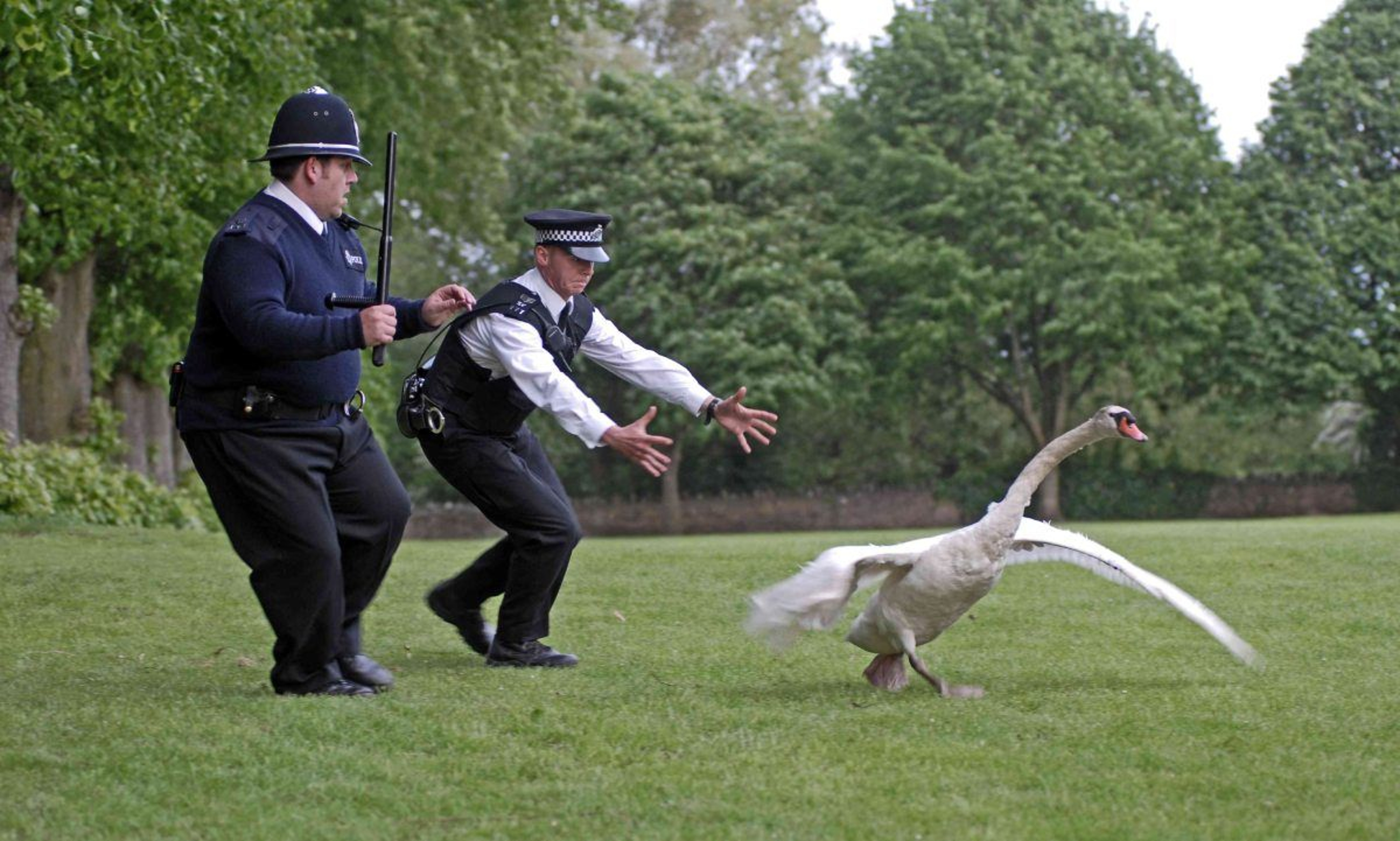
Nick Frost and Simon Pegg in Hot Fuzz
Hot Fuzz
After inventing the zom-com genre with Shaun of the Dead, writer/director Edgar Wright and his pals, Simon Pegg and Nick Frost, turned their comic talents to take down the cop buddy film with Hot Fuzz. When the hard-charging copper PC Nicholas Angel (Pegg) is relocated to the sleepy village of Sanford, his biggest nemesis appears to be an unruly swan and his only friend, the dim-witted constable, Danny Butterman (Frost). But then a series of bizarre killings start and the two find themselves in a dark mystery which grows more absurd at every turn. With precision and verve, Wright uses action movie tropes to turn his little English town into an unexpected criminal nightmare. Leaving realism in its rear window, the film raucously detours into what the Los Angeles Times calls its “ridiculous plot.” In the end, the point of the story is not so much capturing the bad guys as enjoying the ride. “It’s such a vibrant goof, so full of love both for the movies and for its cast of ridiculous characters,” exclaims Slate.
The official trailer for Hot Fuzz
